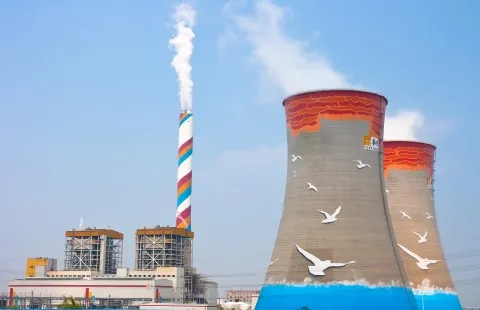
South Korea's policy shift could be a blow on Indonesia's coal companies
Major producers are at risk.
Moon Jae-in’s recent election as president of South Korea raises potentially serious ramifications for Indonesia’s coal exporters, according to Yulanda Chung, energy finance consultant at the Institute of Energy Economics and Financial Analysis (IEEFA).
Faced with growing unrest from an urban population affected by high levels of air pollution, Moon has promised to re-assess the construction of new coal power plants, close older ones and dramatically ramp up the country’s renewable energy ambitions.
His pledges would halve the long-term growth rate for South Korean thermal coal imports in one stroke.
Here's more from IEEFA:
South Korea is Asia’s fourth-largest economy and the fourth-largest importer of coal globally, accounting for over 10 percent of all thermal coal import demand. The bulk of that market—around 40 percent—is made up of China and India, both of which are already well along the path to cutting coal imports to zero. But South Korea had long been considered a remaining growth markets of significant size and a key source of ongoing viability for coal exporters.
Moon’s policies, while newsworthy, are in no way revolutionary. In fact, they are entirely consistent with the technology-driven energy market transformation that is taking place globally and in Asia in particular.
The implications for Indonesia, as the world's largest exporter of coal, are enormous. As Bloomberg analysts noted in an April note, “Indonesian miners may have the most to lose if thermal coal prices weaken in coming months.”
Notwithstanding the recently improved traded price of thermal coal, Indonesia’s major coal producers remain in financial distress. As such they are extremely vulnerable to any sustained decrease in Asian imports.
Total Indonesian coal production for 2016 was 363 million tons, according to the Indonesian Coal Mining Association (APBI) and the Energy and Mineral Resources Ministry, 12.7 percent less than the 416 million tons produced in 2015.
While the portion of Indonesian coal absorbed by the domestic coal market increased from about 21 percent in 2015 to 31 percent in 2016, about 70 percent of all the coal Indonesia produces is at the mercy of the export market.
Major producers are at risk, including Indika Energy, which is extraordinarily exposed to the whims of seaborne trade, with over 74 percent of its product destined for export.
Adaro Energy, not far behind at 70 percent, is one of the top five thermal coal exporters in the world and it sold 13 percent of its coal to South Korea in the first quarter of this year.
Granted, Indonesia’s primary markets are China and India, but any reduction in demand from key North Asian markets like South Korea will hurt pricing at a time when exporters are banking heavily on new growth.
Industry optimists may still point to demand from Vietnam, Malaysia, the Philippines and Thailand, which may well improve slightly over the next few years. But this increase is dwarfed by the scale of the decline in China, India and now South Korea.
Governments all across Asia are seeking to rejigger their energy economies toward domestic renewable energy for the simple reason that it is increasingly cheaper than burning coal. The sooner policymakers and companies face up to the reality of an export coal market in structural decline, the more they will gain from a transition to renewable energy that is gathering pace.



















 Advertise
Advertise







